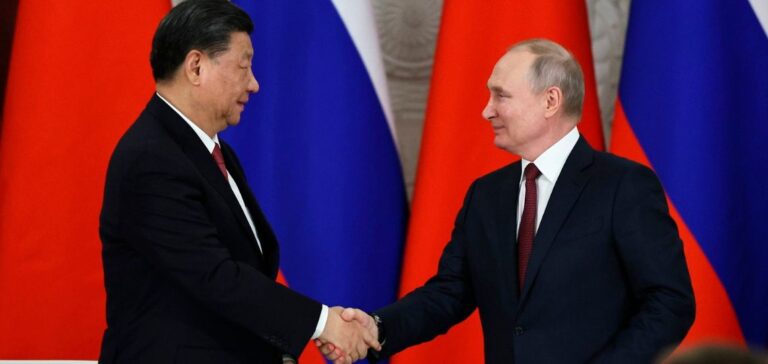Oil trading between China and Russia is intensifying, despite US efforts to circumvent sanctions on Russian oil. The NS Century tanker, operated by Sovcomflot’s Dubai-based subsidiary SCF MGMT, marks a milestone in Sino-Russian energy exchanges. Carrying nearly 700,000 barrels of Sokol crude oil, this vessel symbolizes China’s fourth violation of US sanctions this month, despite the ban on such imports in connection with the war in Ukraine. This action underlines China’s determination to maintain its trade with Russia, regardless of international pressure. The lack of response from Qingdao and China’s General Administration of Customs underlines a strategy of silence and continuity in the face of sanctions.
Reactions to G7 sanctions
The decision by the Office of Foreign Assets Control (OFAC) to impose sanctions on NS Century in November for violating the price cap reveals the tensions between the intentions of G7 sanctions and their effectiveness. The price cap, set at $60 a barrel, was intended to restrict Russian oil revenues without disrupting world markets. However, China’s approach of ignoring these limitations highlights the challenges of applying sanctions in a complex geopolitical environment. Beijing’s reaction, which criticizes the unilateral sanctions and defends its trade rights, shows a growing rift in international unity against Russia.
Strategic and economic implications
By turning to China for its oil exports, Russia has found a way out of the restrictions imposed by the West. This dynamic not only alters global oil trade routes, but also strengthens strategic ties between Beijing and Moscow. On the other hand, this situation reveals the limits of sanctions as a foreign policy tool, particularly when major economies find ways of circumventing them. China’s position as the leading recipient of Sokol crude after the decline in shipments to India demonstrates a significant reorientation of global energy flows.
The future of the global energy trade could be heavily influenced by developments in Sino-Russian relations, particularly as regards oil imports. As China continues to openly defy Western sanctions, the question remains as to how the world powers will react in the long term. This raises questions about the effectiveness of punitive measures in an increasingly interconnected world, and about nations’ future strategies for navigating the complexities of international sanctions.






















